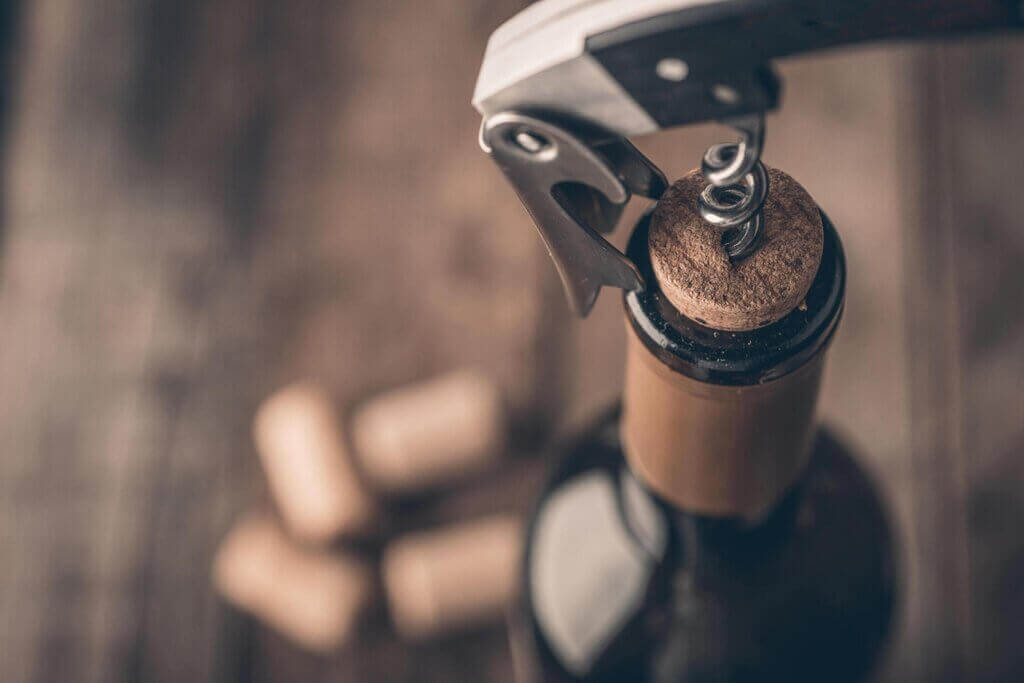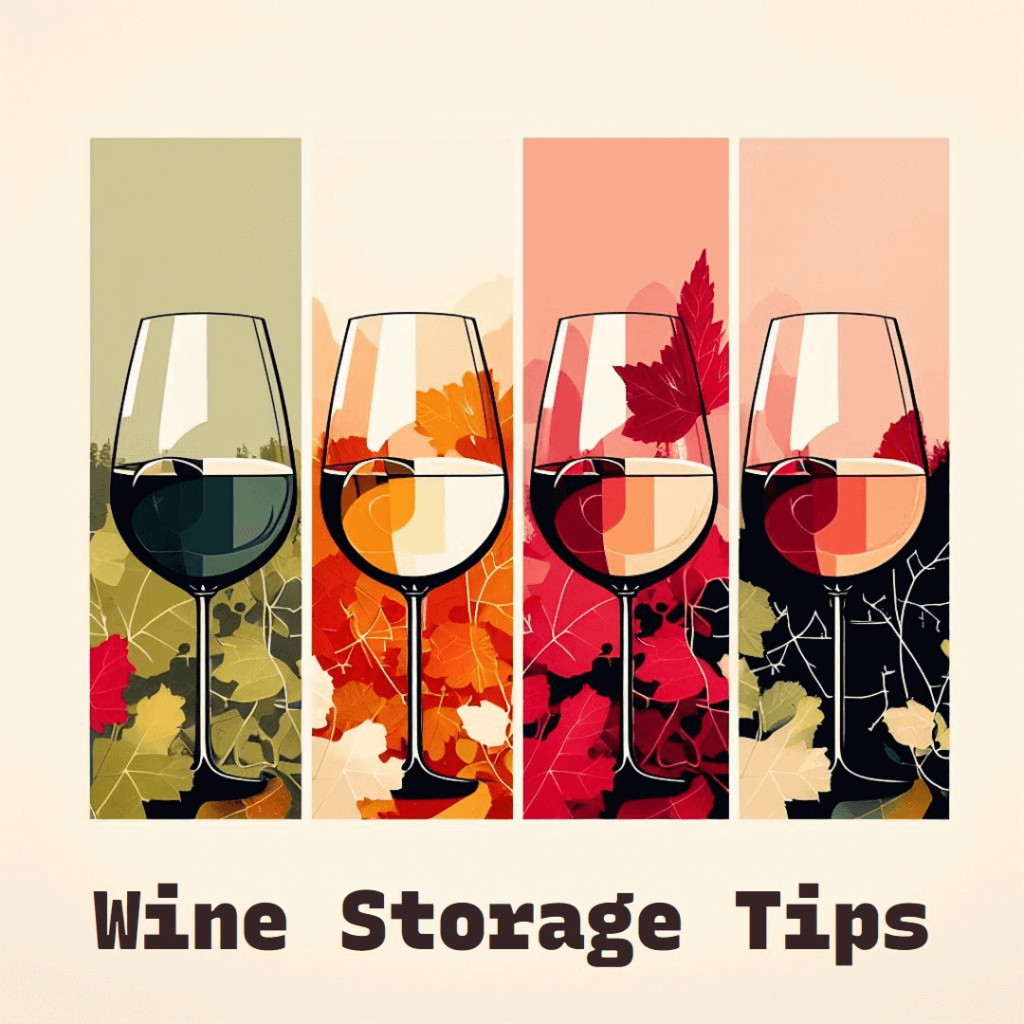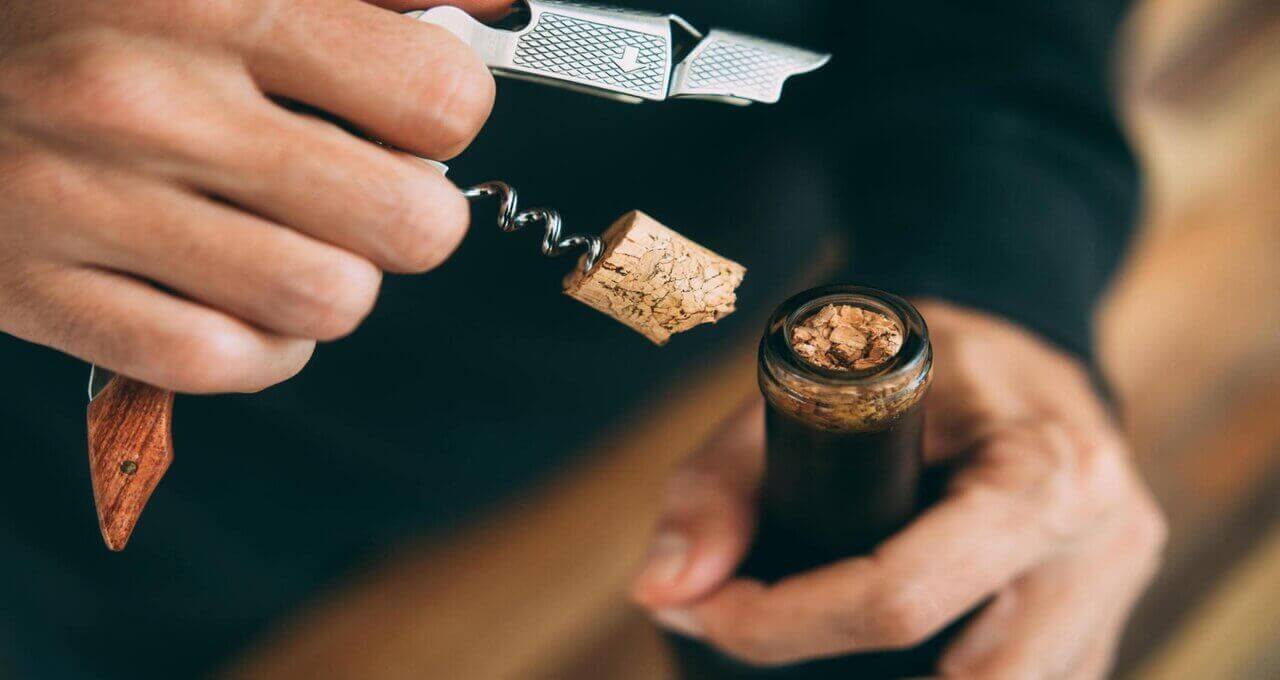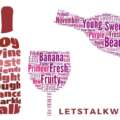Wondering how long does opened bottle of wine will last before it goes bad? You’re not alone. One of the most common wine questions asked is: How long is opened wine good for once exposed to air?
The short answer: After you open bottle of wine last for 3-5 days when stored properly in the fridge. Beyond the simple “wine goes bad quickly” myth lies a more nuanced reality. The shelf life of an opened bottle isn’t a fixed timer; it’s a symphony of factors playing their part. But fear not, wine lovers!
This guide will be your conductor, navigating you through the science of post-opening vino.
How Long does Opened Wine Last? The General Rule
As a general guideline, most opened wines start deteriorating in quality and oxidizing after 3-5 days, even if they are stored properly. They remain safe to drink a little longer but rapidly decline in aroma, flavor and overall enjoyment potential past that first week.
That sharp, vinegary twang you get instead of your beloved fruity notes? That’s a sign things haven’t gone well inside the bottle. Oxidation and chemical changes have worked their magic, leaving your once-glorious wine dull and lifeless.
But there are many nuances…

Key Factors Affecting Opened Wine Longevity
Several variables help determine how long after opening wine will taste good, including:
The specific wine – Some age-worthy reds evolve beautifully for weeks. Fragile whites fade within days.
Wine style – Delicate light bodied wines are most vulnerable to oxidation. High acidity and tannins help preserve others.
Serving conditions – Wine slowly deteriorates with exposure to oxygen, light and temperature fluctuation after opening.
Storage container – The vessel used, amount of ullage oxygen and storage orientation impacts duration.
Personal palate – Our individual smell and taste sensitivity vary remarkably. You may detect issues before or after others.
Let’s explore how each affects lifespan of that opened bottle…
Wine Type Significantly Influences Open Bottle Longevity
Without question, the specific wine itself is the leading variable dictating duration it will stay drinkable after opening. Why such drastic differences? Acidity, alcohol levels, tannins and sugar help preserve certain wines longer than others once exposed to air. A few generalizations:
Aged Reds – Structured varieties like Cabernet, Nebbiolo and Aglianico evolve slowly for 1-2+ weeks thanks to higher acetic acid and tannins to protect against oxidation.
fresh Whites – Delicate Sauvignon Blanc and Riesling will fade within 3-5 days as bright fruitiness shifts quickly to dullness.
Rosé/Sparkling – Their refreshing fruitiness also declines quickly, within 2-4 days for most types.
Sweet/Fortified Wine– Higher sugar and alcohol help these maintain intensity for weeks or longer after opening.
We’ll cover specific wine style duration in more detail shortly. First, factors besides the wine itself merit consideration…
Serving Conditions Accelerate or Delay Opened Wine Spoilage
It seems simple – just recork and refrigerate leftover wine, right? Not exactly. How the bottle is handled after opening significantly impacts duration it stays palatable. The key enemies shortening how long opened wine lasts are oxygen, light and temperature fluctuation. Minimize their influence and you can prolong that bottle’s lifespan by days.
Oxidation – When wine gets exposed to air, chemical reactions occur causing aroma and flavor drop. Think cut apple flesh browning…same principle. Tight sealing slows the process.
Light Exposure – Ultraviolet light and fluorescent bulbs accelerate unwanted oxidative reactions and temperature shifts, shortening shelf life.
Temperature Fluctuation – Warm spots near appliances and colder zones in the fridge stress wine, accelerating undesirable effects.
Taking steps to minimize air contact, keep bottles away from light sources and maintain even, moderate temperature preserves quality and lengthens how long is opened wine good for drinking.
Storage Vessel Impacts Duration Open Wine Lasts
Ever notice how the same wine tastes drastically different between night one after opening vs day three? Oxidation plays a leading culprit. An opened bottle inherently contains some oxygen affecting the wine over time. But vessel choice for storage after opening matters greatly.
Original Corked Bottle – Each time you extract then reinsert the cork, more oxygen is introduced, accelerating deterioration. Leaving bottles upright also exposes wine to more air vs keeping bottles laying on their side.
Alternate Sealing Closures – Want to banish that pesky air from your opened bottle? Tech-savvy stoppers with built-in pumps suck out the oxygen, creating a vacuum and keeping your wine happy. But even without fancy gadgets, you can be resourceful! Just reusing the original screw cap or opting for closures that seal tight can extend your vino’s lifespan.
*Non-Bottles – Decanting into smaller, sealable containers reduces ullage space and oxygen volume that damages wine. But transferring to containers possibly introduces more air contact.
So storing opened bottles properly helps, but finding the right sealing vessel extends quality best. Let’s explore wine style specifics…
So How Long is Opened Wine Good for?
Understanding intrinsic structural differences between wine types helps set realistic expectations for how long is opened wine good for maximum enjoyment. Here are general duration guidelines:
Most Red Wines Last 5-10 Days After Opening
Young Reds – Youthful medium to full bodied Cabernet, Merlot and Malbec stay enjoyable for about 5 days. Their prominent tannins and acidity help preserve freshness. Light reds fade more quickly.
Mature Reds – Aged, aromatic varieties like Pinot Noir peak around 3 days and decline faster. Their fragility warrants consuming quickly.
Structurally Complex Reds – Collectible Cabernet, Sangiovese and Nebbiolo have higher tannins and acid preserving them 7-10 days or occasionally longer.
Most White Wines Last Only 2-5 Days Opened
Delicate Whites – Soft, fruity Pinot Gris, Riesling and Sauvignon Blanc will oxidize after just 2-3 days. Enjoy these soon after opening.
Fuller Bodied Whites – Richer Chardonnay and white blends withstand exposure a bit better, lasting up to 5 days. Their weight buffers against rapid deterioration.
Sweet Whites – Flasks of late harvest and dessert wines have high residual sugar levels protecting from rapid oxidation so they’ll last 2 weeks or longer.
Rosés, Sparklings & Blends Vary After Opening
Rosés – Like lighter reds, most rosé wines have less tannic structure so begin deteriorating after just 2-3 days. Their charm fades quickly.
Sparkling Wines – Bubbles dissipate rapidly after opening, so enjoy within 6-12 hours ideally, up to maybe 2 days if absolutely necessary.
Fortified & Sweet Wines – Port, Madeira and sweeter style wines have added alcohol and sugar prolonging duration to several weeks or longer when stored properly.
Remember, these are general guidelines with producer, vintage and storage variations between wines. Track specifically if you notice particular bottles fading faster or proving more durable.
Now let’s get into maximizing opened bottle preservation…

Tips to Extend Opened Wine Shelf Life
Want to get the most mileage from that opened special occasion bottle without wasting great wine? Consider these pro tips used by wine professionals:
Use Specialized Bottle Stoppers
Investing in vacuum seal bottle stoppers helps literally remove oxygen from filled bottles to minimize oxidation effects. Just pump out air after inserting and wine stays fresher days longer. Cost ranges from $10 up to several hundred.
Transfer Leftovers to Smaller Containers
Decanting remaining wine into smaller, sealable containers without headspace protects better than original bottles allowing oxygen to damage wine. Ensure vessels are fully topped off. Mini wine kegs work great.
Store Open Bottles Properly
Keep opened bottles cold, dark and sideways. Refrigerate immediately after initially tasting wine. Store horizontally on their sides to keep corks moist and maximize liquid contact avoiding oxidation.
Utilize Wine Preservation Systems
Specialized wine preservation spray systems like Private Preserve work by displacing oxygen from open bottles using inert gases. With less oxygen exposure, oxidation slows and wine lasts longer post-opening before turning. Follow each spritz actively pumping wine to maximize oxygen removal from the bottle.
Reseal with Original Screw Caps
More and more wines now released under screw cap closures better preserve freshness and fruitiness compared to natural corks. If your leftover wine has an original screw cap, use that for resealing instead of shoving a cork back inside. The tighter screw seal prevents additional oxygen entry.
Cellar Open Reds Properly
Upon opening during initial tasting, have leftover red wine you intend cellaring short term? Store bottles on their sides in a dark, vibration-free spot around 70% humidity and 55°F temperature if possible – essentially recreating the barrel aging environment.
Freeze Leftover Portions
When just a glass or two remains, pour leftovers into freezer bags or ice cube trays. Frozen wine keeps indefinitely and makes great cooking additions. Thaw before consuming.
Partially Decant Initial Portions
Rather than fully decanting the entire bottle’s contents during initial tasting, try split transfers leaving some wine behind. Pour just a few glasses worth into your decanter, leaving remaining wine protected in its original bottle to avoid excess oxygen exposure.
Proper planning helps reduce waste and extend enjoyment of special bottles…
How Long Before Opened Wine Goes Bad?
While an opened bottle slowly deteriorates in quality from first pour, the countdown until wine is truly bad and unsafe happens surprisingly fast.
Bad Wine Indicates Health Risk – Remember that glass of wine that turned vinegary a while back? Don’t even think about taking another sip! Spoiled wine, beyond the realm of unpleasantness, can actually make you sick with symptoms similar to food poisoning.
Duration Depends on Wine Style –Forget that forgotten rosé in the fridge! When it comes to lasting vino, think sweet and strong. Those sugary dessert wines, fortified heroes with a splash of extra spirits, and bold, tannic reds packed with higher alcohol – these guys can hang around way longer than your typical light-bodied sipper. It’s like they have a built-in shield of sugar, alcohol, and tannins that keep wine fresh for the party.
Warning Signs of Spoiled Wine
How can you easily identify bad wine? Signs involve changes in appearance, aroma or flavor:
Cloudiness – Wine loses clarity and develops opacity like apple cider. Whites turn brown. Sediment usually falls to the bottom but spoiled wine looks curdled throughout.
Vinegar Smell – The most obvious giveaway involves a harsh vinegary nose when you sniff, which grows more intense in spoiled wine. A light touch of volatility can seem like added complexity. But acetic spoilage is unmistakable.
Metallic Taste – A coppery blood-like taste comes across the palate signaling unwanted chemical reactions have occurred. This typically appears alongside other issues.
Bandage Aromas – Another defect from chemical instability causes distracting medicinal, bandaid-like smells wrecking enjoyment. This surfaces well before dangerous levels happen.
Mold – On very old wines not stored properly, visibly fuzzy mold colonies may appear either in the bottle or poking up through the cork. Obvious sign not to consume something that hairy!
Thankfully true spoilage happens slowly. But when several off-putting traits converge, play it safe rather than risk getting sick from a bad bottle.
Frequently Asked Questions About Opened Wine Duration
Still uncertain how long that open bottle or glass is still ok to enjoy? Below are answers addressing commonly asked questions about maximizing opened wine duration:
Does opened wine really go bad eventually?
Yes it does! From the first pour, oxidative chemical changes slowly occur altering aroma, flavor, texture and color. Tastes veer toward dullness and oxidation quickly initially, then take a turn toward volatility and spoilage compounds later. Both make wine unenjoyable.
Can I drink wine opened months ago stored properly?
While you can technically consume wine sitting for months after opening, it will likely taste dull, faded and unappealing. Aroma compounds dissipate quickly, even if held in ideal conditions. Brief preservation is possible but months exceed practical drinkability if you value the taste. Some old fortified or vintage Port lasts longer. But quality still diminishes over time.
How long after opening can I store wine in the fridge?
An average wine safely lasts 3-5 days refrigerated when minimizing headspace oxygen and light exposure before oxidation issues emerge. Structurally stronger, higher quality wines made to age slowly tend to wine can last in the fridge 7-10 days. Delicate lighter wines fade in just 2-3 days. So fridge storage buys you less than a week typically at best.
Can I drink 2 year old opened wine stored correctly?
Highly unlikely any wine lasts appealingly for years after opening, even with ideal storage. Structural changes happen slowly over time regardless of closure. Eventual acetic spoilage prevails. Sweet and fortified wine lasts longest – maybe 3-6 months for certain styles. But quality deteriorates quickly. Two years likely proves undrinkable however safely stored. Expect vinegar attributes.
Is wine ok 10 days after opening if refrigerated?
The short answer depends on wine style and storage. More durable red varieties remain enjoyable 7-10 days while delicate whites fade far quicker. Proper cold storage, minimal light exposure, topped off bottles and specialized closures all help prolong drinkability too by limiting oxygen contact. But 10 days pushes the limit for peak enjoyment.
I hope this guide has helped explain exactly what impacts “how long does opened wine last” drinkability along with tactics to optimize every precious last drop! Please share any other tips that have worked to extend that bottle’s lifespan. Or ask follow-up storage questions in the comments. Curious if certain wines last longer from your own experience. Cheers!



